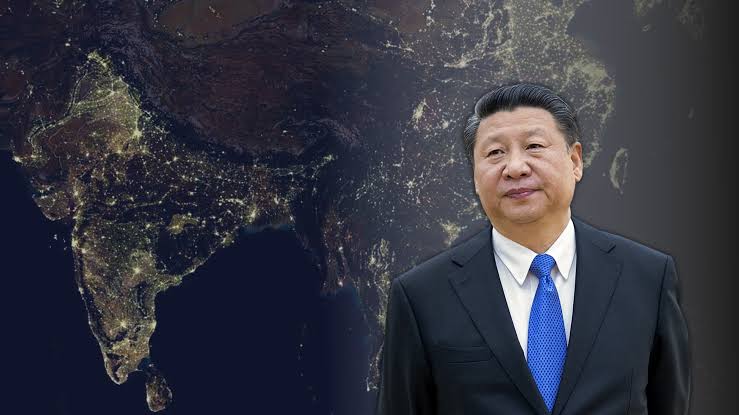China’s roaring not cutting ice with any one in Indo Pacific

Chinese and Philippine ships clashed last year as disputes over shoals and other outcroppings in the Luzon Sea or Natuna Sea or Champa Sea port South China Sea as it is called flared up. In order to intimidate Philippines China then began roring and accusing Philippines of violating China’s sovereignty “in collusion with outside powers.”
Instead of cowering down, Manila soon signed a pact to import BrahMos missiles from India, in order to defend itself from any Chinese misadventures. Once these missiles are deployed operationally then certainly the PLAN ships will think ten times before trying to ram any Philippines Ship or to violate its territorial waters.
Diplomats from China and the Philippines have now agreed at a recent meeting in Shanghai to work toward lowering tensions in the Luzon sea / South China Sea, but doing so won’t be easy.
Though the Chinese Defence Ministry Spokesperson Wu Qian said “It must be frankly stated that it is impossible to resolve the current South China Sea issue overnight.” Though typically he added “China is willing to resolve the issue through dialogue and consultation, “ but warned that “if the Philippine side insists on taking its own course, we will surely take firm countermeasures.”
On the other hand on the issue of easing tensions in the Taiwan Strait, Wu whimpered that “ it is very necessary for the big power concerned, namely the United States, to stop interfering and stop provoking.”
China whimpered about the U.S. of abusing international law with its military manoeuvres in the western Pacific, one day after an American naval destroyer sailed through the politically Taiwan Strait.
While China welcomes military-to-military communication with the United States, Defense Ministry spokesperson Wu Qian said Thursday that U.S. warplane and warship activity “on China’s doorstep” is the root cause of the problems between the two military powers.
“The United States side should stop abusing international law, cease all dangerous and provocative behaviour, and strictly restrain the activities of front-line troops, which is the fundamental way to avoid accidents at sea and in the air,” he said at a monthly briefing.
The USS John Finn sailed Wednesday though the 160-kilometer wide waterway that separates China from Taiwan, an independent country that China claims as its own territory.
China agreed to resume military contacts with the U.S. at a meeting last November between Presidents Joe Biden and Xi Jinping in California. In part, the argument for doing so was to be able to manage an unintentional collision or other incident that could happen as both sides hold drills and patrol the waters in regional hotspots including the Taiwan Strait and the Luzon sea / Champa sea /South China Sea.
That’s that all its actions are in line with international laws that guarantee freedom of navigation.
“No member of the international community should be intimidated or coerced into giving up their rights and freedoms,” the U.S. Navy’s 7th Fleet said in a news release on the John Finn’s transit of the Strait. “The United States military flies, sails and operates anywhere international law allows.”
China’s rise has given it the ability to project military power into the western Pacific, which brings it into conflict with Taiwan, Philippines, Vietnam and Indonesia. Though it claims the Taiwan Republic as its own, with others it just has territorial disputes.
Though China keeps threatening Taiwan of direct invasion, military wise PLA does not have sufficient military power to carry out an amphibious assault on Taiwan. The Taiwanese military is formidable and is in position to inflict major unacceptable loses on PLA while it is still trying to cross the Taiwan Strait. The force which manages to land then is likely to get bogged down in fighting within the heavily built up areas right after crossing the landing beaches.
Also to muster enough forces for invasion of Taiwan, China will have to withdraw forces from other Theatres by which weakling itself against a Tibetan and Quighers quest for regaining their independence. Certain other regions of Communist China proper too may see a revolt against despotic rule of Beijing.
Apart from the above, any attack on Taiwan may invite inevitable Trade and other economic sanctions from Countries of European Union, USA and NATO members though it will have minimal effect on China.
However independence of Xinjiang and Tibet will certainly have a potential of unravelling Communist control inside entire China itself. Also this action is certainly going to involve the American Forces which will rush to defend Taiwan. Japan and South Korea too may get involved directly.
The American military activity is after all aimed in part at deterring China from launching any attack on Taiwan or using its strength to enforce its territorial claims in disputes with smaller neighbours such as the Philippines.




